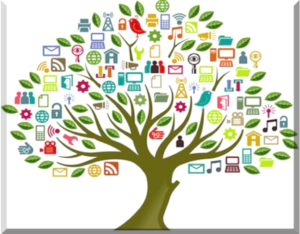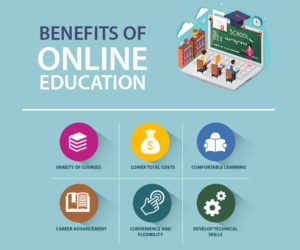Aparna Bose
Students – Satyam College of Education, Noida
Under the guidance of Dr Preeti Agarwal
Faculty – Sayam College of Education, Noida
 The pessimist complains about the wind; the optimist expects it to change; the realist adjusts the sails.
The pessimist complains about the wind; the optimist expects it to change; the realist adjusts the sails.
William Arthur Ward
As COVID 19 continues to spread its claws over the entire education system, economy, and health care, one may say that the “Demons lay outside” is the new proverb. Approximately 210 countries and territories have been affected so far by the deadly virus. The pandemic hasn’t been partial to anyone, as it has hit the developing countries as well as the developed ones.
India, a country standing second in the world in terms of highest population, suffered tones of losses in the education sector initially. As the number of infected cases increased every single day, from the mid of March, the schools started closing all over the country to stem the further infections. Finally, the lockdown was imposed in each nook and corner of our country, and all educational institutions were closed down amidst board and university exams.
Given the present scenario, neither the government nor the educational boards can predict the future dates when institutions can be opened for students. In this hour of uncertainty and complexity, teachers have emerged as the unsung heroes for conveying home – based education for pupils of all age groups. The educators are ensuring that the lessons are being delivered to the farthest extent possible. Every parameter of the digital India vision of the government is being tested in facilitating education for dealing with crises due to COVID- 19. The hands – on cookies available to the learners are:

The lockdown and sealing of hot spots have accelerated the adoption and acceptance of technology to multiple folds in our country. Parents have started to realize the benefits of online education. In India, any advent of technology especially in schools is met by acute skepticism leading to the demoralization of the spirit of the educators. The same happened with the emergence of online classes, which was initially discouraged by some parents as they thoroughly discouraged the use of digital education. But the patience of the teachers kept the show going. Through rapid experimentation and deployment of new tools, meaningful education is being delivered to students off – campus. Pedagogy in digital education forms a link between course content, educators, technology, and students. The virtual classes being offered on the online platform are accelerating the pedagogical process as they offer a comprehensive scenario which is appropriate for learning:

This is an opportunity to become more efficient and productive while shaping new and improved professional skills for teachers and parents as well through online learning and assessment.
If we care to look at the brighter sides of this lockdown, we will realize that these tools are making student – centered education more meaningful. The parent/teacher meetings as well as the staff/management meetings may become more time saving while making use of the necessary interactivity. Technology – based education is more transparent and does not discriminate children based on front versus backbenchers or gender.
The democratization of technology has become an essential criterion for the government so that internet connectivity, affordability of online system, and access to devices is available to all the students irrespective of geographical terrains or financial status. Teachers are being empowered with SWAYAM online courses, MOOCs is available for UG/PG students for non – technology courses and e-content containing modules on social studies, arts, natural science, and mathematics. For virtual classrooms, various conferencing tools are available viz. Microsoft Teams, Google classrooms, Hangout Meet, and Zoom.
Furthermore, the internet is loaded with several online courses for kids like https://www.google.com/amp/s/curlytales.com/6-free-online-courses-you-can-take-during-this-lockdown-to-sharpen-your-skills/amp/ for refreshment of mind and body. Mathematical and reasoning skills may be sharpened through BRICSMATH and dragon learn, which are platforms for e-learning and simultaneous competitions.
At this juncture, efforts should be made for catering remote learning to every corner of the country as the pandemic seems to lurk around for longer periods. It is possible that in the near future, a student may opt for a course from any university even being registered from the home university. The quality of the teacher and fees of the course may be the prime concern for the learner and not the geographical location. A rapid change in the thought process of the parents, students, policymakers, authorities and teachers is required for this to take place in reality.
Faculty would be selected based on technology friendliness and keenness towards adaptations. COVID-19 has accelerated the pace of adoption of efficient technology on the face of education. This will surely strengthen India’s digital infrastructure for learning in the upcoming future.